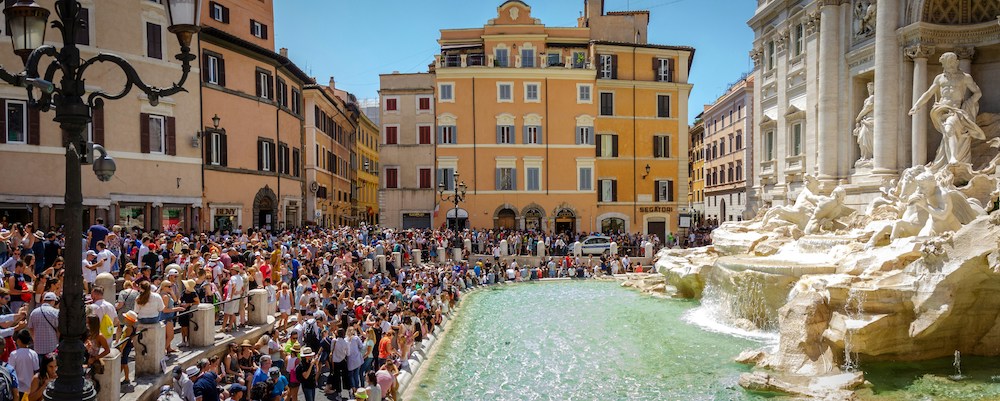The elusive quest for free travel experiences
It seems that three coins in the fountain are no longer enough. In the heart of Rome, the Trevi Fountain, a marvel of Baroque architecture, has long been a symbol of free, accessible beauty. However, a proposal to charge a fee for visiting the iconic site signals a growing trend that’s making it increasingly challenging for meeting and incentive planners to incorporate free travel experiences into their programs.
The Trevi Fountain isn’t alone. From Venice’s proposed tourist tax to Barcelona’s crackdown on overcrowding, cities worldwide are grappling with the impact of mass tourism. While these measures aim to preserve cultural heritage and improve the visitor experience, they also have a ripple effect on the meetings and incentives industry.
Planners have long relied on free attractions and experiences to enhance their programs, providing attendees with opportunities to explore destinations and create lasting memories. However, as more cities adopt fees and restrictions, these options are becoming scarcer. This shift forces planners to either absorb the additional costs themselves or pass them on to attendees, potentially impacting the attractiveness of their programs.
Moreover, the focus on crowd control and revenue generation can detract from the spontaneous and authentic experiences that make travel so rewarding. The joy of stumbling upon a hidden gem or enjoying a leisurely stroll through a historic district is diminished when faced with long queues, timed entries, and hefty fees.
While the challenges are real, they also present opportunities for innovation. Planners can explore lesser-known destinations, partner with local businesses to create unique experiences, or focus on activities that emphasize cultural immersion and personal connection. By adapting to the changing landscape, they can continue to deliver exceptional programs that inspire and delight attendees.
The proposed fee at the Trevi Fountain serves as a reminder that the travel industry is evolving. As cities seek to balance tourism’s benefits with its impact, planners must be proactive and creative in their approach. The future of meetings and incentives lies in finding new ways to provide meaningful experiences that go beyond the traditional tourist trail.
The rising costs of tourism, coupled with economic pressures, demand a reevaluation of traditional planning strategies. While the quest for authentic and enriching experiences remains paramount, it is essential to adapt and innovate in the face of these challenges.
As we move forward, the industry must advocate for sustainable practices that prioritize both the quality of experiences and the financial well-being of organizations. The goal is clear: to ensure that incentive travel continues to inspire and motivate, even in an increasingly complex environment.
Any thoughts, opinions, or news? Please share them with me at vince@meetingsevents.com.
Photo by Jeff Ackley on Unsplash





